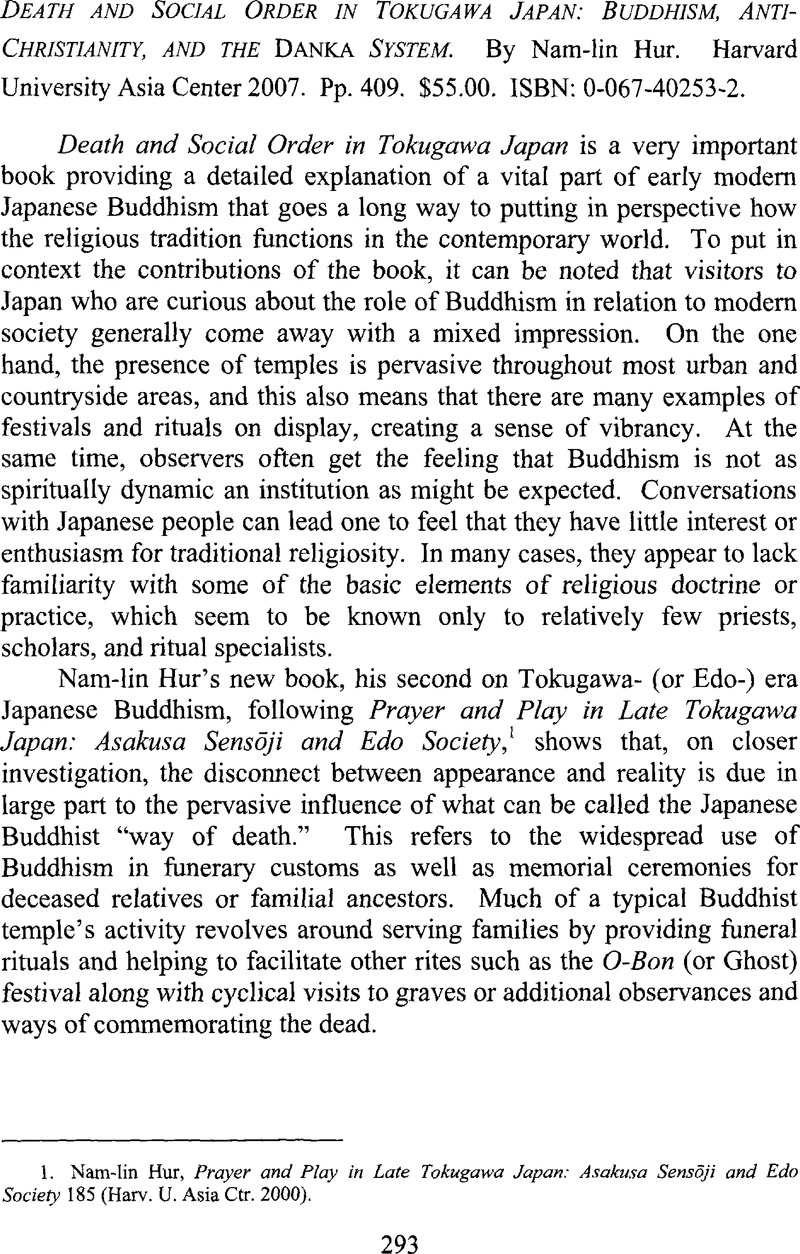No CrossRef data available.
Article contents
Death and Social Order in Tokugawa Japan: Buddhism, Anti-Christianity, and the Danka System. By Nam-lin Hur. Harvard University Asia Center2007. Pp. 409. $55.00. ISBN: 0-067-40253-2.
Published online by Cambridge University Press: 24 April 2015
Abstract

- Type
- Book Reviews
- Information
- Copyright
- Copyright © Center for the Study of Law and Religion at Emory University 2008
References
1. Hur, Nam-lin, Prayer and Play in Late Tokugawa Japan: Asakusa Sensōji and Edo Society 185 (Harv. U. Asia Ctr. 2000)CrossRefGoogle Scholar.
2. Taijō, Tamamuro, Sōshiki Bukkyō (Funerary Buddhism) (Daihōrinkakv 1963)Google Scholar.
3. Covell, Stephen, Japanese Temple Buddhism: Worldliness in a Religion of Renunciation (U. Haw. Press 2006)Google Scholar and Bernstein, Andrew, Modern Passings: Death Rites, Politics, and Social Change in Imperial Japan (U. Haw. Press 2006)Google Scholar.
4. Covell, id. at 172.




